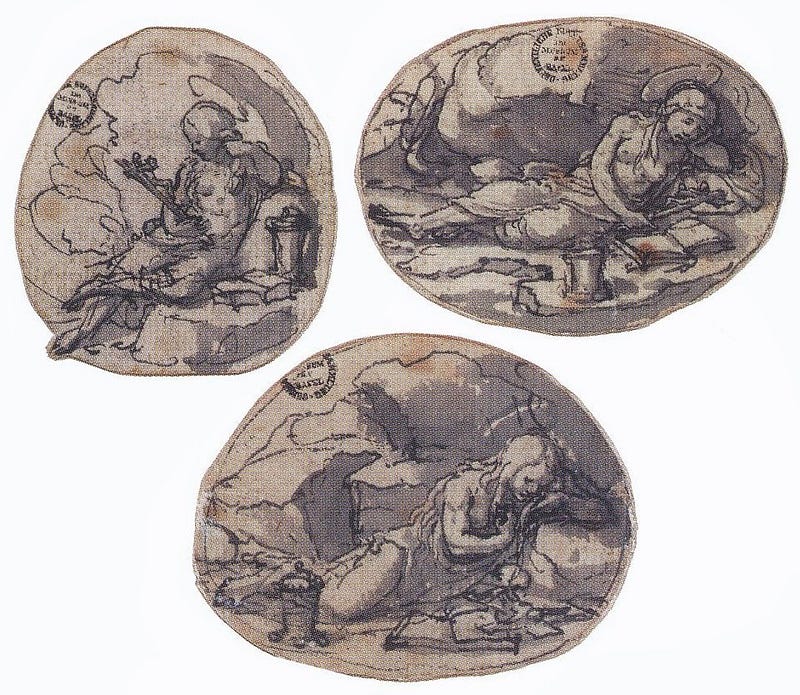How to Become a Hero (or just be a better human being)
The famous mythologist, Joseph Campbell, has the answer to becoming a better person. And it only takes two steps!

If the tyrant is the hoarder of the general benefit, the person who takes from the society they should be caring for, what is the opposite? Who opposes the “monster avid for the greedy rights of my and mine”? (Campbell, 14). The answer can be found in Indiana Jones and the Last Crusade. No, seriously. Bear with me for a moment.
In the final act of The Last Crusade, the titular hero, Indiana Jones, must complete three ancient challenges in order to reach the Holy Grail.
The first of these tests is a spider-webbed tunnel that has already claimed the lives of numerous Nazi soldiers. As he enters the tunnel, Indiana repeats the words from his father’s notebook, an ancient mantra passed down through the century as a guide to surviving the test. “Only the penitent man shall pass. The penitent man is humble before God. Only the penitent man shall pass” (The Last Crusade).

Funnily enough, this is almost exactly what the renowned scholar of mythology, Joseph Campbell, wrote in his book The Hero with a Thousand Faces. “The hero is the man of self-achieved submission,” writes Campbell, before asking, “But submission to what?” (Campbell, 15).
Campbell probes this question by first exploring what it is not. We cannot solve the “schism of the soul” or the schism of society, by returning to the “good old days” or by trying to “render an ideal projected future” (15).
“Only birth can conquer death,” Campbell goes on to write. The “birth, not of the old thing again, but of something new” (15).
But what does this mean? How can you as an individual, and we as a society, learn to experience rebirth in order to solve the schism of our souls?
Like most of us (whether you realize it or not), you are surrounded by chaotic forces that seem to hem you in. Systems of power force you to compromise with evil people, or bow down to tyrants. You are constantly subsumed, thrust under the wheel of history, all while simply trying to live your life.
“The first step,” to undoing this unconscious cycle of subsummation, Campbell writes, is “detachment or withdrawal… a radical transfer of emphasis from the external to the internal world.” (16).
This state of returning to the internal world is something you already do every day. You carry within yourself the combined symbolic history of our entire species, and every night, as you dream, you contact that mythic history and become part of it.
The “first work of the hero is to retreat [to] the psyche where the difficulties really reside, and there to clarify the difficulties, eradicate them in his own case (i.e., give battle to the nursery demons of his local culture)” (16). By doing this, you come into contact with what Jung called the “archetypal images.”
As you pass deeper into your dreams, you move beyond the ordering of your daily struggles and come into contact with the deeper experience of all humankind. This is what Buddhists call “discrimination” (16). “The hero, therefore, is the man or woman who has been able to battle past his personal and local historical limitations to the generally valid, normally human forms” (18).
The second work that must be undertaken is then to bring our discoveries from the internal world to our fellow human beings. We must return to the depths of Plato’s Cave, where our fellows are still enraptured by the shadows on the wall, and we must offer them our experience as a guide out of the dark.
Again, we find Indiana Jones bearing the correct answer. The secret, at the end of the Grail quest, is that the holy water can only be used to heal others, not for the gain of personal glory. Everlasting life comes through the care we show to others, and through the ripples that our actions make in the world around us, long after we are gone. The hero is one who immerses deep within their own psyche, but returns to share, and teach others what they have learned.
“The multitude of men and women choose the less adventurous way of the comparatively unconscious civic and tribal routines,” writes Campbell. “But these seekers, too, are saved — by virtue of the inherited symbolic aids of society… It is only those who know neither an inner call nor an outer doctrine whose plight truly is desperate” (21).
The hero’s work is not the work of a savior-leader, or a hierarchical master… but rather of an exemplar: one who teaches through example. Such a person is the ultimate expression of the ideal student, for only through teaching others can we truly learn something for ourselves. We are, ultimately, social creatures with an instinct toward mutual aid, and it is only by fulfilling that instinctual drive that we can heal ourselves and our society. We heal ourselves by offering care, aid, and support to those who walk beside us through this crazy and confusing world.
Works Cited
Campbell, Joseph. The Hero with a Thousand Faces. Commemorative ed, Princeton University Press, 2004.
The Penitent Man Will Pass (Last Crusade). Directed by Notorious Fraud, 2021. YouTube, https://www.youtube.com/watch?v=gY5gkkfaHL8.
